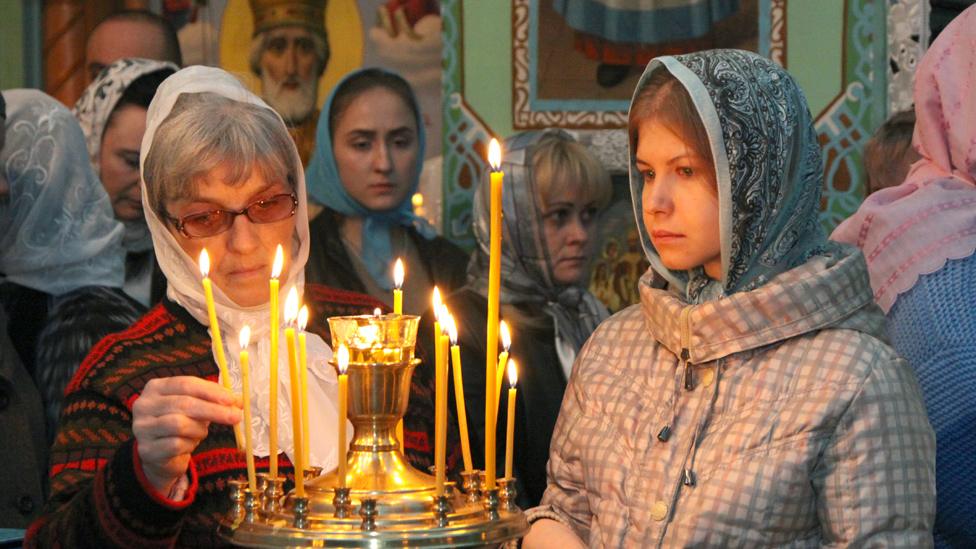Ukraine monastery raid as SBU targets Russian agents
- Published
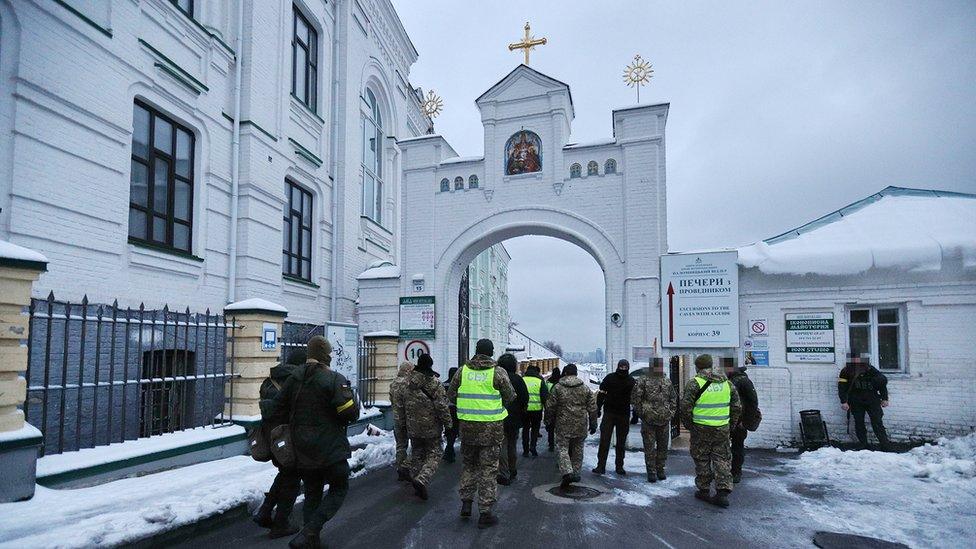
The security service in Kyiv said it aimed to prevent the monastery from being used for subversion
Ukraine's security service has raided a historic monastery in Kyiv in an operation it says was aimed at stopping Russian agents using the site for sabotage, intelligence or weapons.
The Kyiv Pechersk Lavra Christian monastery dates back to the 11th Century and is a seat of Ukraine's Orthodox Church (UOC).
The Church split from the Moscow patriarchate after Russia's invasion.
The schism was prompted by Russian Patriarch Kirill's support of the war.
Despite this, some of the UOC's top clergy have been accused of still covertly supporting Moscow, using their position to influence churchgoers.
The Kremlin said the raid was another attack by Kyiv on Russian Orthodoxy.
The SBU security service in Kyiv announced on Tuesday it was conducting "counter-intelligence measures" to target the "subversive activities" of Russian special services. It said there was an increased risk of attack, sabotage and hostage-taking in places that attracted large groups of citizens.
The monastery, which is a Unesco World Heritage site, was one of a number of Orthodox churches raided on Tuesday, as authorities responded to complaints that clergy had been glorifying Russia and could be in league with the Kremlin.
A criminal inquiry was opened a week ago after a video emerged of pro-Russian propaganda being sung, referring to the awakening of Mother Russia.
Days later the head of a diocese in the Vinnytsia area of central Ukraine was charged, external with preparing propaganda leaflets backing Russia's invasion.
Kremlin spokesman Dmitry Peskov accused Ukraine of being "at war" with the Orthodox Church for a long time. Patriarch Kirill condemned an "act of intimidation of believers".
As head of the Russian Church, the patriarch is widely seen as an ally of President Vladimir Putin and has given his full backing to the Russian war in Ukraine.
Shortly after the invasion began, he painted the war as a struggle of "metaphysical significance" against sin and Western pressure to hold "gay parades".
More recently he said any Russian who enlisted for combat in Ukraine was committing "an act that is tantamount to a sacrifice".
In Ukraine the raids were broadly welcomed, because the Ukrainian Orthodox Church (UOC) split from Moscow only six months ago after centuries under its control, leaving a suspicion that it is still used by the Kremlin to sway public opinion in Ukraine.
Since 2018, many Orthodox parishes in Ukraine have been joining a new Orthodox Church of Ukraine (OCU), which was granted independence by the global Orthodox movement a year later.
However, talks aimed at unifying the country's Orthodox community are yet to yield any tangible results.
Ukrainian political analyst Valentyn Hladkykh said the clergy and believers of the UOC ultimately had to decide who they served: "God or the Kremlin executioner."
Related topics
- Published5 January 2019
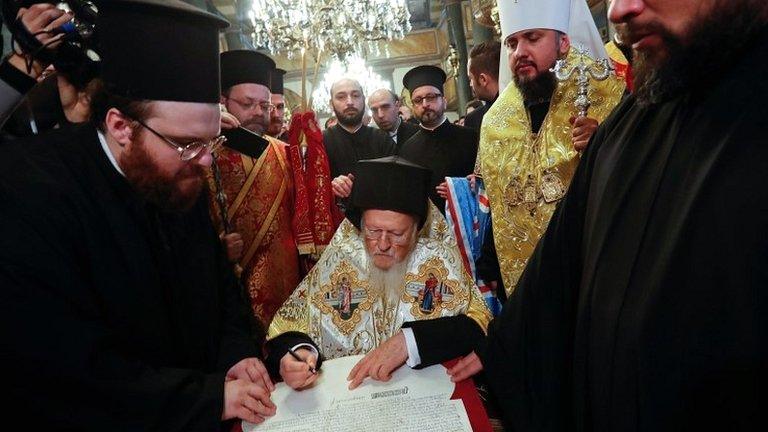
- Published22 November 2022
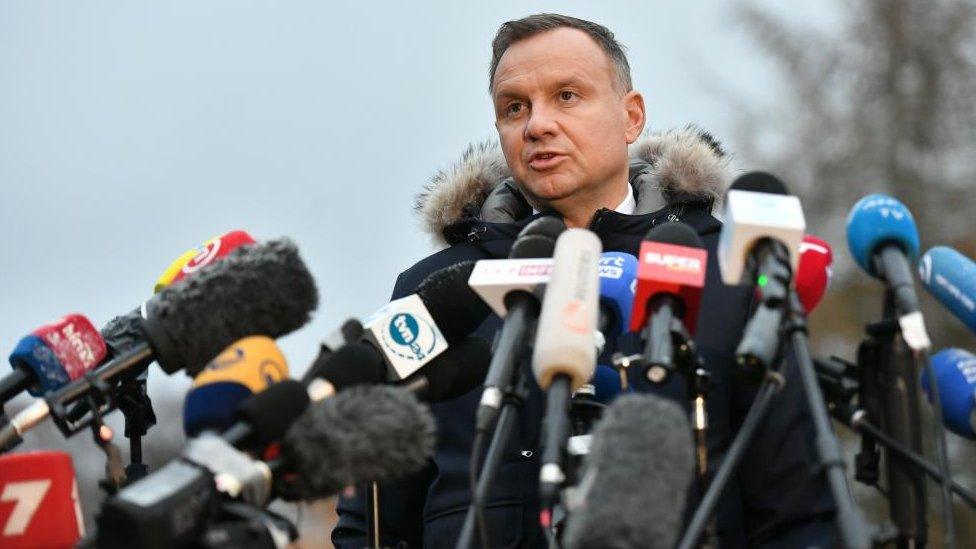
- Published21 November 2022
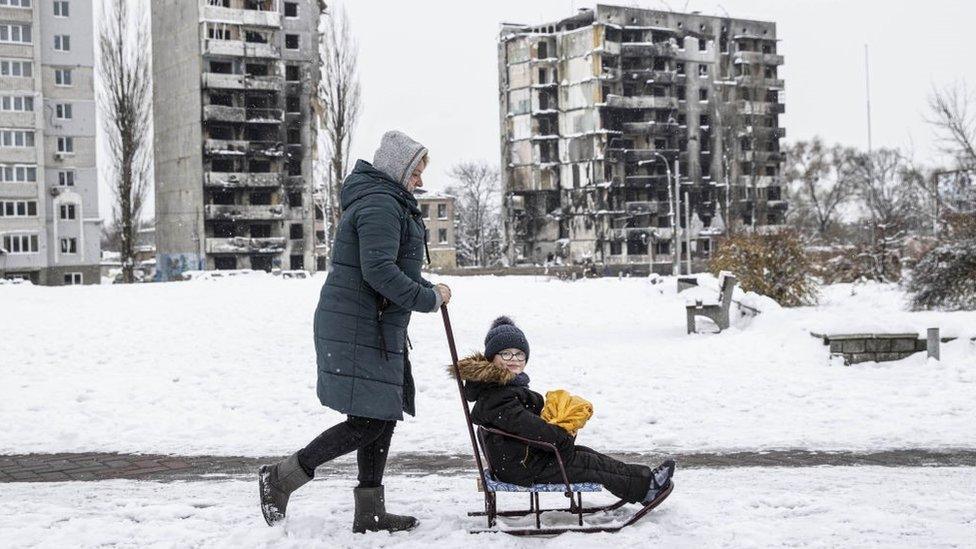
- Published17 October 2018
